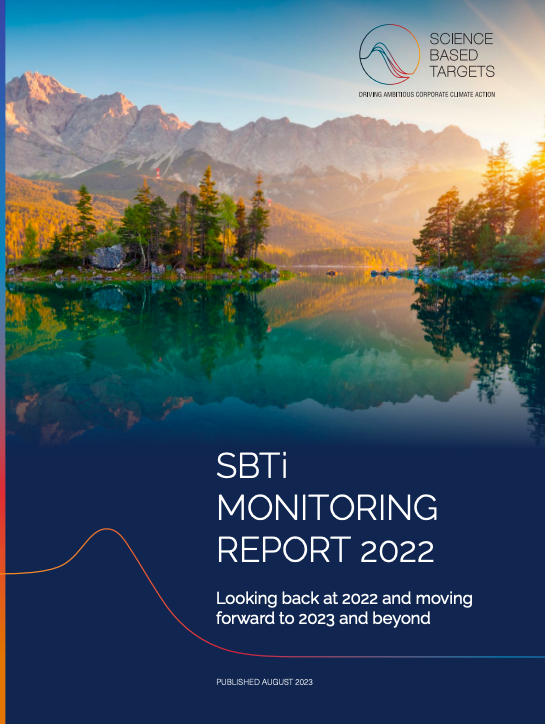Momentum on climate action builds with more companies setting science-based targets in 2022 than in the past seven years.

New data shows that the number of companies and financial institutions setting science-based targets for greenhouse gas (GHG) emissions reductions is continuing to grow amid more frequent extreme weather events and socio-economic instability.
“Energy costs, inflation and supply chain snags shaped an extraordinarily challenging operating environment that created false compromises between climate action and bottom line protection,” Dr Luis Fernando Do Amaral, CEO of the Science Based Targets initiative (SBTi) noted in SBTI’s ‘Monitoring Report 2022’. More companies and financial institutions set science-based targets in 2022 than in the previous seven years combined.
In fact, 1,097 companies had their science-based targets validated by the SBTi in 2022.
According to the report, Japan boasted the highest number of companies setting science-based targets in 2022, closely followed by the UK and the US. Companies with science-based targets represented 40% of the Nikkei index by the end of 2022.
Asia saw the greatest proportional growth in companies setting science-based targets, with the region witnessing a 127% increase in 2022. China experienced the steepest growth curve with a 194% increase in the number of companies validated. Africa and Latin America also experienced growth, the report noted.
This is the first time that the SBTi has observed growth in companies setting science-based targets in every continent. Albania, Malta, Myanmar, Romania and Tunisia saw companies set targets for the first time, while businesses in Liechtenstein, Morocco, Sierra Leone, and Trinidad and Tobago committed to set science-based targets.
Further, there was significant growth in the number of small and medium-sized enterprises (SMEs) setting targets, with SMEs representing the majority (58%) of organisations setting targets in 2022.
Sixty percent of companies setting targets came from the service, manufacturing and infrastructure industries. The materials industry saw the highest growth in the number of companies setting targets, while the three lowest represented industries – power generation, biotech, healthcare and pharma, and hospitality – saw little change.
“Companies must act now”
Formed as a collaboration between CDP, the United Nations Global Compact, World Resources Institute (WRI), the World Wide Fund for Nature (WWF), and the We Mean Business Coalition, SBTi develops criteria and provide tools and guidance to enable businesses and financial institutions to
set GHG emissions reduction targets aligned to keeping climate change to below 1.5°C.
Climate-focused stewardship has rocketed up the agenda for investors in recent years, as asset owners and managers look to align their portfolios with a 1.5°C temperature pathway.
Major investor-led engagement initiatives, such as the Net Zero Asset Owner Alliance (NZAOA) and Climate Action 100+, have outlined in their guidance that climate-related engagements and net zero targets should be aligned with a 1.5°C pathway.
“This annual update from the SBTi shows the enormous demand from the business world for credible, ambitious targets for reducing greenhouse gas emissions,” said SBTIi’s Amaral.
“As catastrophic floods in Pakistan to deadly heatwaves in Europe in 2022 demonstrated, the human and economic costs of climate change are already being felt around the world.
“Companies must act now.”
Companies representing more than a third of the global economy (34%) by market capitalisation had set or committed to setting science-based targets by the end of 2022, the report found.
Sixty-nine percent of FTSE companies had set science-based targets, while 88% of companies listed on France’s CAC Index had set or committed to set targets by the end of 2022, compared to 70% on Germany’s DAX Index, and 42% of S&P companies.
As of July 2022, the SBTi has only accepted new target submissions which are aligned with 1.5°C, indicating an increase in the level of ambition for corporate climate action.
Currently, 2,079 companies have science-based targets validated by the SBTi, with 2,151 having made commitments to set targets.
“The best way of protecting companies and people long-term remains robust action on climate,” Amaral added.
“Our work here is only just beginning, but with science guiding the way, perhaps all of that hard work and innovation can go a little further in helping to avoid the very worst effects of climate change.”
Source: https://www.esginvestor.net/demand-for-credible-net-zero-targets-rising-sbti/

